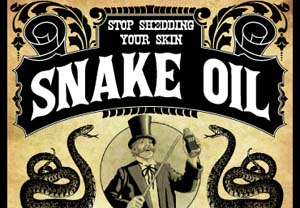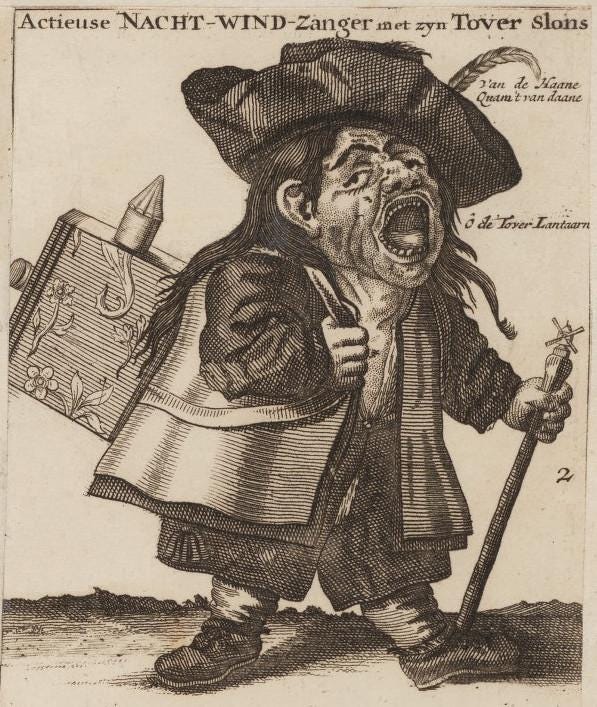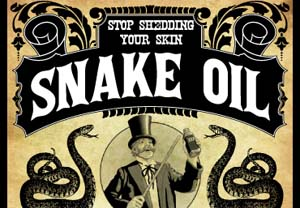Unfortunately, every new technology opens up opportunities for the flim-flam man and night singer. It is no different with my technology and what people have done with it. In time, Bitcoin will change the nature of such opportunities, but it will take time. Right now, even what people are being sold as Bitcoin is a cheap copy. A night singer is nothing new. During the South Sea bubble in 1720, fraudsters would sell shares in stock. The form of pump-and-dump securities fraud involved inflating the price of an asset using false and misleading positive statements so that the perpetrator could push the price up and sell their cheap asset at a far higher price.
We see the same now occurring in what people call cryptocurrencies.

New tokens are created that are fraudulently purported to have some long-term value. Many, as with Binance’s token, tell you that they are not securities, but simultaneously they will go up in price. They will sell you the lie that because they are tokens, they are something new. The reality is that all securities and commodities have gone through a process of dematerialisation decades ago. In the 90s, we saw a wave of penny share scams based on the electronic sale of tokens over bulletin boards and USENET.
In the case of Binance, they tell you how they will build a decentralised exchange. The reality is that it is a pure fraud. There is no such thing as a group-owned decentralised exchange. It is purely and simply a means to enact what used to be called a humbug. That is, a deceptive or false talk, hypocrisy, and posturing that is empty. When they tell you they were decentralised, they throw the word out there without any explanation. They say it’s on a blockchain, so therefore it’s not centralised. But, every single token launched as an ICO is centralised. It’s run by a group. It’s controlled by individuals. Binance controls Binance coin. Binance controls its exchange. Most people don’t understand that decentralisation means the decentralisation of power. The Binance exchange is controlled by individuals, and is subject to law.
In fact, it is subject to US law. Binance.com places the exchange squarely within the realm of US control. To say so is not a mere assertion, “.com” domains have been considered to come under US territory for decades now. It is well tested in law.

Such things of course are part of the problem right now. In a few months, laws that cover all of such exchanges including the mythical DEX will start to be enforced. Whether in Europe or North America, companies like Binance will have to start reporting on suspicious activity and money laundering. They will need to be able to do so going back in time for all of their customers if they are to trade in January 2020 at all. As such, if they operate past December 2020, they will be acting criminally unless they will have already moved to integrate a complete AML KYC project. They haven’t really even started, and they have no intention to do so.
The democratisation of finance
The hyperbole of democratising finance is the consistent cry of security scammers everywhere. We hear it again around crypto. The democratisation of finance is the promise that all households can make money and/or manage risk by buying appropriate financial services and products without having to do the research or effort that is required and conducted by institutional investors. We saw the same in the early 1990s, and we saw it as it led to the Internet bubble. They who are seeking to run scams rely on the lack of financial education, captured by ones promoting false promises to the financially illiterate. The Internet boom of the 1990s reflected one of the 1920s, and is mirrored again in the world of crypto assets. We see promoters pumping enthusiasm for crypto assets in the same manner many in prior decades sought to create mass public enthusiasm for stocks without value, as they now created for digital tokens. The characterisation of economic democracy through investing is nothing new (Frank, 2000).
Wall Street itself was presented as the saving force allowing the common man and small investor to get past the elitism of the entrenched financial industry. Ones such as Warren Buffett used populism to defend Wall Street as they built their own empires…
…while the world of finance had once been a stronghold of WASP privilege, an engine of elite enrichment, journalist and PR man alike agreed that it had now been transformed utterly, being opened to all. This bull market was the Gotterdamerung of the ruling class, the final victory of the common people over their overlords. (Frank, 2000: 92)
In the 1990s, as with the 1920s, the illusions of moneymaking were only swept away when the market crashed and the corporate scandals and frauds were finally revealed. Unfortunately, in this new round of growth of valueless assets and tokens that point to digital nothing, we will have to see the emperor in his full glory as the market for digital assets returns to its true value. Only assets with use that develop something for the larger world will survive. As a protocol, Bitcoin competes with substitute goods. It acts as a digital ledger that is being pumped and sold as if it was something else, but in the end, only one ledger will survive. Which will be the ledger that competes based on market performance — not exchange prices, for they are not the market. People have used the language of 1984 to tell you that such exchange was the market, but to say so could not be further from the truth. The exchange is Main Street, not Wall Street. Yet they tell you that the valueless flipping of coins and gambling speculators in a wild orgy of monetary pumping means value. Value is what is offered to society at large. And markets come through use.
Following the passing into law in the UK of the Companies Acts of 1856 and 1862 — facilitating the creation of limited liability companies — the average investor “was wealthy, tended to confine his investments to two or three companies and was interested to a certain degree in the running of these companies.” (Jefferys, Trends, 172–3).
The new technology and the ability to use professional mailing services started to change the scene in the 1880s and 1890s. Companies started to create hype around new investment opportunities. It led to a boom. There were new issues and the creation of many organisations that took money but never delivered anything. The British mail order firm G. Smith Dalby-Welch Limited listed more than 510,000 individual investors across Great Britain following its founding and launch in 1868 to where it grew to promote securities across Britain decades later. The company’s pamphlet, Finding the Buyer, as was published in 1911 (London Guildhall, pamphlet 21957), promoted securities to the average man. It was financial democratisation at its widest. It was an age of bucket shops.
It is an age that we are seeing once again as false assets with no value or use are pumped and sold to the unwary who have no idea of what they’re buying but are told that they could get rich if they get in early.
Many people complain that the financial crash of the 1920s, the Internet boom and bust of the 1990s, and other problems throughout history have been the result of interference from banks who use credit instruments to prop up a failing economy. There is an error in their method of thought. Many fail to see that the problem of democratic access to finance is not why the economy is failing. The banks are not the problem. they are but a symptom. The misallocation of funds is not the result of misallocation through banking or government, but starts and derives from fraud and deceit. It is, once again, what we are seeing.
The very same catchphrase has been reused. The democratisation of capital was the cry of the market in 1929. It was an era when shoeshine boys would tell you of the great stock bargains. Today, the equivalent of the shoeshine boy is a telegram group or a chat group where people falsely pump digital assets that no one in the group understands.
In 20 years, we will look back following the massive crash that will come and see one surviving protocol. Not a protocol that sells to the market in order to democratise finance, but a single protocol that offers value.
John Rothschild said in 1996:
Are we at the same fatal stage in the market today, when people who aren’t expected to have stock tips have stock tips, including hot dog vendors, shoeshine boys, the homeless, pedicurists, barroom dancers, toll takers, and the trumpet player at the racetrack? Will stock prices fall off the cliff under the weight of enormous popularity?
We are at such a point today. We are at the critical stage, but we have moved from stock tips to crypto assets. Now, we find hot dog vendors, the homeless, and the flim-flam men peddling illegal exchanges and talking about money to be made, wealth that cannot be avoided, and riches without work.
When you hear people say that Bitcoin and blockchain democratise finance, ask them what they mean.
The term democratise finance is nothing new. It was used in the 19th century, whenever flim-flam men and humbugs tried to sell worthless pieces of paper with a promise of instant riches. It is the promise of getting rich quick without work, without effort, and without knowledge of the market you’re investing in. It is the lie that a bucket shop is a market. It is the lie that allows people to take money from the needy, the ignorant, and the foolish, and is the lie that has become crypto.
BitCoin doesn’t have value because of bucket-shop exchanges. They are not the market. A market for any good is use and its final destination as a commodity product.
It’s not my place to save you. Do know that I do wince when I think of what is coming. We will keep building, and we will keep creating. At the same time, we understand that it is not a short journey. It is one of delivering value; not on the bucket shops and illegal exchanges designed to help criminals, money launderers, and drug dealers move money with impunity, but the future plumbing in the system that changes the Internet from a commons that must fail to something that has value.
I am not on social media. If you see me, or at least my image on Twitter, Facebook, or Telegram, then it is not me. You are being conned. More importantly, I don’t sell anything publicly. If you have a deal that seems too good to be true, it’s unlikely to be true.
References
Frank, T.: One Market Under God. Extreme Capitalism, Economic Populism and the End of Economic Democracy, London: Vintage (2000).
Jefferys, James. B.: Business Organisation in Great Britain 1856–1914. New York: Arno Press (1977).

